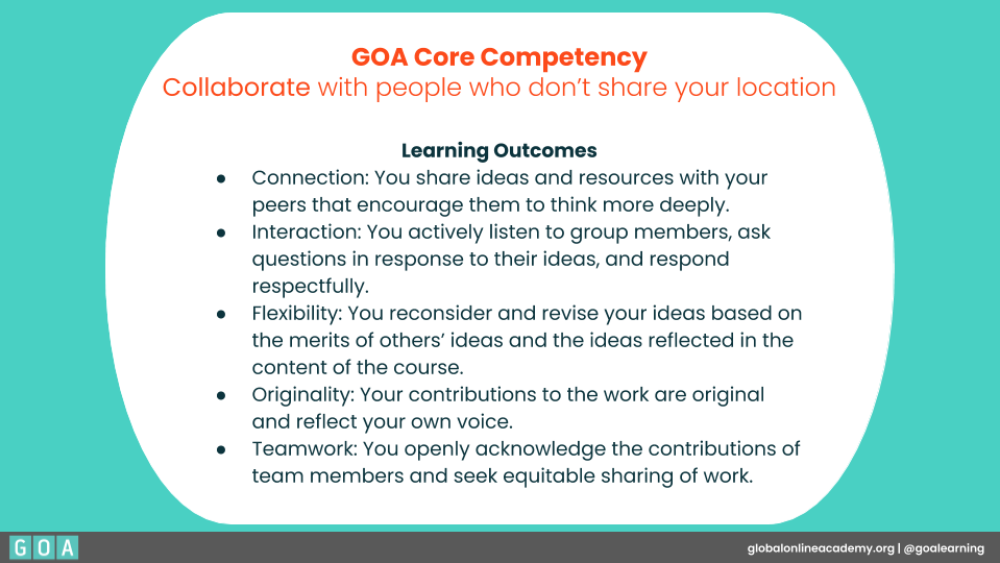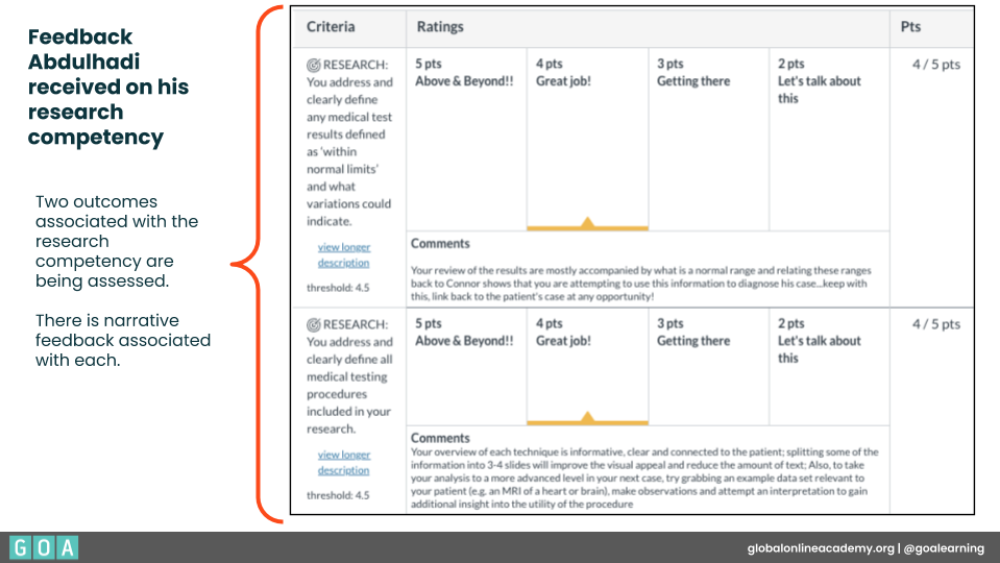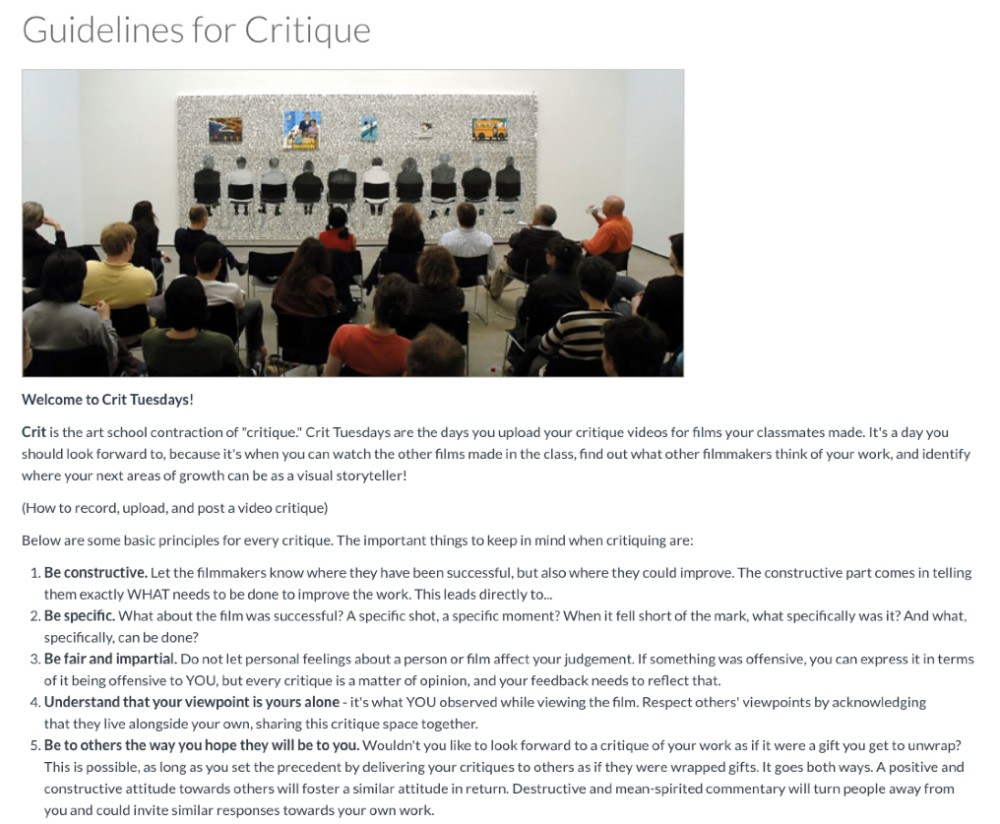Four Skills that Matter for Deeper Learning, According to Students
Now more than ever, educators need to ask, "How do we know students are learning?" As assessment practices shift from more easily quantified in-class tests and quizzes to more project-based online work to prepare for hybrid or virtual learning, we also need to shift how we recognize, measure, and provide feedback on learning.
One important strategy: ask students.
I surveyed a small group of students in GOA's Student Program who have taken two or more GOA classes about the skills they transferred from one course to another across their GOA experience, as well as the skills that they find themselves transferring from GOA classes to other contexts, both in school and beyond. Their responses indicate we can measure learning by focusing on transferable competencies, by looking for what students are able to do with content, not just if they have absorbed it.
What follows are four suggestions for educators that emerged from their responses.
1. Get specific about what collaboration means and assess it often.
Collaboration is one of GOA’s six core competencies. We ask teachers to design learning experiences that prioritize collaboration as aligned to five learning outcomes:

In Semester 1 2019-2020, GOA faculty assessed these learning outcomes more than any other. Shilpa, a 10th grader at the American International School of Lagos, started with GOA in the summer before her 9th-grade year with Medical Problem Solving I and has since gone on to take another GOA class each semester (and in the summer), studying Introduction to Psychology, Abnormal Psychology, Positive Psychology and Fiction Writing. She alludes to the first “connection” outcome above, saying that in her first GOA courses she struggled to push her peers contributions further in discussions, but that “ in [her] Positive Psychology course, [she] had learned that doing even just a little extra research can make all the difference in furthering a discussion and creating a collaborative learning environment amongst [her] peers.”
2. Focus on lifelong inquiry and research skills.
According to Carnegie Mellon University’s Eberly Center, developing an original research question and being able to gather, criticize, organize and articulate your findings is an enormously important skill as students move from our classrooms into higher education and beyond. They’re also quick to point out that many students begin their undergraduate studies without strong research skills. Allowing students the time, space and scaffolding to develop independence in this area is vital. Caroline, a Greens Farms Academy, 12th-grader speaks about this directly:
“Taking courses through GOA has made me an adept researcher. Because the classes are so self-directed, and it's up to us to do the discovering, I've improved my ability to find helpful sources and information. It's also taught me to be diligent and self-disciplined when I do my work (which is a competency).”
Abdulhadi, a student at King’s Academy in Jordan, reflects on the way that GOA’s Medical Problem Solving teachers scaffold student research and how it allowed him to transfer his independent research skills to his work in other classes, including an Advanced Placement Literature course.
“When examining multiple medical cases in the GOA courses, facts were usually listed, while hypotheses and inquiries regarding learning issues were also noted on a planning page. This planning page from the GOA course acted as a blueprint for my other classes. [...} It's amazing how the skills learned from one discipline could be applicable to another discipline, especially if they may not sound related to one another.”

Feedback Abdulhadi received from his Medical Problem solving teacher, Treavor Kendall of Greenhill School during his first GOA course in 2017.
The common thread in these and other student reflections is that the teachers provided students with both the structure they needed to succeed, and the time and space to do it with some degree of independence.
3. Help students become excellent, intentional communicators.
According to Forbes, 50% of all employees in the global economy work remotely for at least 50% 0f the time, and a full 66% of U.S. knowledge workers believe traditional offices will be obsolete by 2030. Being an excellent online communicator requires students to be facile with a few tools (in our program it’s Canvas, Zoom, Twist, Loom, and email), but it also means developing the independence and self-advocacy skills necessary to reach out to teachers and classmates proactively. Kelly, an 11th-grader at Greenhill School jumped into Positive Psychology in Semester 1 of her 10th-grade year and has since taken Entrepreneurship in a Global Context, Introduction to Investments, and Climate Change and Global Inequality. She notes that “GOA requires a level of accountability and communication with your teachers and students that you cannot develop in a normal classroom experience.” Shilpa in Lagos also added that the global online environment requires intentional communication that forces learners (and teachers!) to be thoughtful about how they communicate. She says, “Before, I wasn't aware of just how important communication between peers as well as student to teacher is. It's simply not something noticeable in normal classes.”
4. Teach students to give great, actionable feedback.
Last, but certainly not least, our students report learning to give thoughtful feedback in a variety of contexts. As my colleague Susan Fine has written elsewhere, designing opportunities for peer feedback is crucially important. Kelly at Greenhill again touches on this:
“My Positive Psychology teacher, [Lauren Gehman of Metairie Park Country Day School], taught me how to respond to others' posts in a way that is both engaging and response-stimulating. This skill has helped me in nearly every aspect of my life: I am better at giving and receiving feedback, and I can more accurately analyze research and reflections due to Mrs. Gehman's strategy of questioning people's epistemologies when receiving information.”
It’s important to empower our students’ voices so that they become confident critics of their own work and that of others. Liliana at Albuquerque Academy has taken Medical Problem Solving I, Filmmaking and Gender & Society with GOA over the last three semesters. She has developed her own voice when it comes to building her peer-to-peer feedback skills.
“When I started, I was awful at giving critique. I never knew what to say or I was too scared to voice my opinion [...]. But in almost every single assignment and every single one of my classes, we have to give feedback to our peers, and they have to give feedback to us. So, through three semesters and lots of assignments, I think I can finally say that I am good at giving feedback. [...]I'm definitely going to be using [this skill] for the rest of my life.”

The skills that will transfer from one setting to another are the ones that we have defined clearly and that we assess and give feedback on several times over the course of a semester, yes, but also over the course of several semesters or in several courses across a given program. As schools’ remote learning plans push teachers and students outside of their assessment comfort zones, defining and tracking transferable competencies is paramount.
